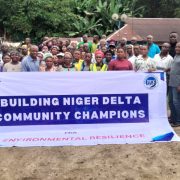The Power of Words in Ecological Campaigns: A New Wave of Resistance, Reclamation is in Town
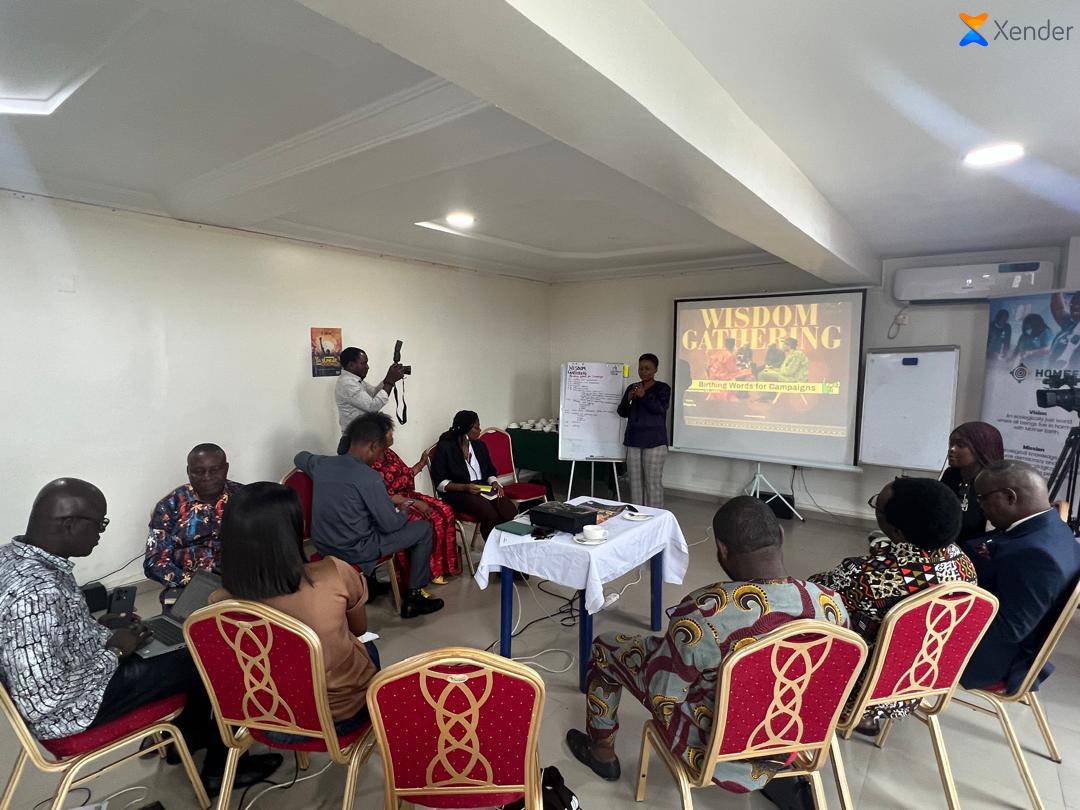
By Ekemini Simon
In the heart of Uyo, Nigeria, a small group of cerebral, visionary individuals converged on Friday, September 19, 2025 for a Wisdom Gathering convened by the Health of Mother Earth Foundation (HOMEF). Their objective was clear: to challenge the status quo and redefine the language used in ecological justice campaigns. This colloquium struck a momentous milestone in the pursuit to protect sacrificed territories, natural heritage, and biodiversity from the ravages of extractivism and destructive activities.
Why Challenge Words?
HOMEF’s Executive Director, Dr. Nnimmo Bassey, set the tone for the gathering with a profound declaration: “Words must be challenged. “The reason? He explained that language is very powerful and sometimes controls lives. But there is more. “The knowledge space is a realm of contestation, where language and words are scrutinised to unravel their true meanings”, Bassey said. The Director drew from HOMEF’s past experiences, citing the 2014 booklet “Re-source Democracy,” which sought to redefine resources as something to be cherished, not merely marketed. He said the polluted understanding of the word “resource” is what drives exploitation around the world.
Bassey pinpointed another word which has been abused as sustainability hence the reason HOMEF introduced “Sustain -ability”, to impress upon minds that things should not be degraded but be allowed to take care of themselves.
Other words and phrases Bassey appraised are pollution above safe standard and critical minerals.
The Environmental Activist wondered why the World Health Organization (WHO) set out a level of pollution that is said to be below and above safe standards. “If we use such phrases, it means that we accept that pollution is inevitable or acceptable and that we accept poisoning to a certain level”, Bassey said. He added “Why should WHO set a standard where pollution is acceptable? This gives license to the polluters whereas no level of pollution is acceptable.”
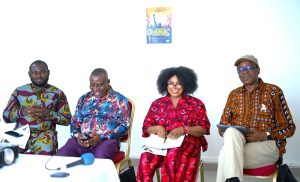
The HOMEF’s Director further questioned the reason why the minerals such as lithium, cobalt and nickel used to produce renewable energy are called critical minerals.
“That’s to emotionally blackmail people who oppose taking these minerals. It means that if you oppose it, then you don’t want us to have renewable energy because they are critical to renewables. It doesn’t matter the condition or sacrifice others pay for these minerals to be produced”, he said.
Reclaiming more Ecological Narratives
The gathering critiqued terms like “Decarbonisation” and “Net Zero,” arguing that these concepts often prioritize technology and markets over justice. Dr. Kingsley Ugwanyi from the School of Languages, Culture and Linguistics, University of London in his presentation highlighted the significance of naming in shaping perceptions. He noted that campaigns don’t just use words; they birth them, and words born of struggle can endure, travel, and mobilise.
On decarbonisation, Ugwanyi said although the word sounds scientific and neutral with the claims on reducing carbon emissions, the problem lies in the term being framed around technology/markets and not justice stressing that it ignores who bears the costs (sacrificed communities). For Ken Henshaw, the Executive Director of We The People, decarbonisation makes people think that carbon dioxide is the only problem of climate pollution whereas extractivism, especially gas flaring, also emits methane which aggravates climate emergency. He recommended that “Depollute” should replace “Decarbonise” if the urgency of the climate crisis must be ingrained in the minds of people.
On Net Zero, Ugwanyi said although the word promises that emissions produced will be “balanced” by removals (tree planting, carbon capture, offsets), the problem of the word lies in allowing continued pollution under the illusion of balance; a license to delay real cuts.
He said Carbon Neutrality, similar to Net Zero which is balancing emissions with offsets, has the problem of corporations using it as green branding while continuing extractive activities.
Birthing Community-Based Coinages
The Wisdom Gathering explored two community-based coinages: “Ogonize” and “Yasunize.” These verbs draw inspiration from the Ogoni people’s historic struggle against Shell ecocide in Nigeria where 300,000 marched in peaceful protest, declared Shell “persona non grata”, forced suspension of oil operations thus standing as iconic symbol of African resistance.
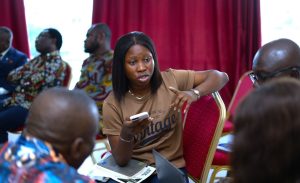
In the same vein, Yasunize stems from 2023 Yasuní initiative in Ecuador, where 59 percent of Yasunize people voted in the first national referendum on fossil fuels, choosing to keep oil underground thus standing as a global signal for biodiversity over oil.
According to Ugwanyi, these terms compress place, history, and resistance into action words, redefining reality and mobilising bodies to demand change.
The gathering agreed that it was apt for Ogonize to mean “keep oil in the ground” while Yasunize means “protect sacred land”.
Interestingly, participants undertook epistemic examination of other words and came out with recommendations of coinages critical to ecological justice campaigns with plans to reveal them in the near future.
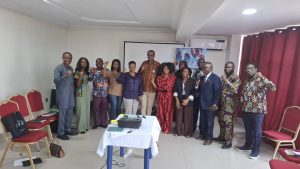
Plans to Popularise Reclaimed/Community-Based Coinages
Since these words have just been birthed, how then would people get to know it, appreciate, adopt and use them? The answer lies in Ugwanyi’s recommendations; repetition in campaigns by incorporating the words into chants, songs, banners, and social media hashtags.
He said there is a need to embed the terms in poetry, music, performances, and stories. The media must also be reached by pushing the words into op-eds, press releases, interviews, and everyday conversations.
For Ugwanyi, the Academics should not be left out, these terms should be confidently published in essays, conference papers, and reports.
What is more, he highlighted the importance of amplifying these terms on social media by creating hashtags, memes, and short videos explaining the words’ meanings and stories.
As the world grapples with the challenges of climate emergency, it is clear that language matters and the Wisdom Gathering underscored the importance of language in ecological justice campaigns by challenging dominant narratives and coining new terms to shape perceptions and mobilise struggles.
Yet, the task ahead is to live, repeat, and circulate these words until they become part of culture and struggle.







